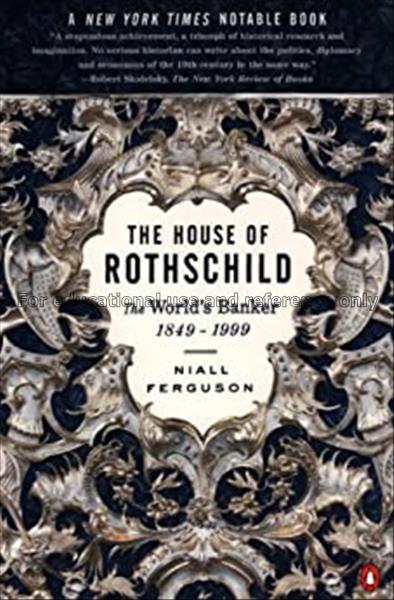The house of Rothschild / Niall Ferguson
Author : Ferguson, Niall

Founded in the late 18th century by expatriate German Jews, the London-based House of Rothschild was within decades the largest banking enterprise in the world. Its principals controlled a vast portion of the industrial world's wealth--more so, Oxford historian Niall Ferguson writes, than any family has since--and as a result enjoyed tremendous political influence in the major capitals of Europe, counting as allies such important figures as Metternich and Wellington. That influence would provoke countless anti-Semitic tracts fulminating against Jewish usury and against the power of "Eastern potentates" in the empires of England and France. Although the Rothschilds were well aware of their power and not reluctant to use it, they operated fairly, Ferguson notes. For example, whereas lending rates in the textile industry, in which the Rothschilds got their start, were often 20 percent, the fledgling house charged 5 to 9 percent. Through shrewd, complex negotiations they helped promote peace and the beginnings of economic union throughout Europe
| Barcode | Call No. | Volume | Status | Due Date | Total Queue | |
|---|---|---|---|---|---|---|
| 1010073260 | IK00023 | On Closed Stack | 0 | Please Login |
Related Book